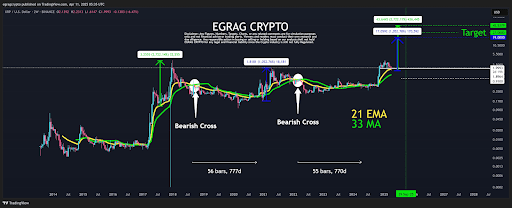UXLINK Partners with Stanford’s Digital Currency Initiative: Global Financial Inclusion

Key Takeaways:
- Digital currency’s role in financial inclusion was explored with UXLINK joining Stanford’s FDCI.
- The partnership will enable UXLINK’s R&D for creating transparent, accessible payment rails.
- More people using digital currency could enhance the global value of UXLINK and its adoption.
UXLINK Collaborates with Stanford to Shape the Future of Digital Currency
UXLINK, the world’s largest Web3 social infrastructure and platform, has officially joined Stanford University’s Future of Digital Currency Initiative (FDCI). The initiative — which resides in Stanford’s elite Computer Science Department — is focused on exploring how digital currencies can address access to financial services around the world.
The partnership is aligned with the UXLINK mission to expedite mass integration of Web3 technologies while enabling financial inclusion — ensuring access of basic financial tools to everyone regardless of geography or income level. With the move, UXLINK sends a strong message of its continued support for the smart payment infrastructure of the next generation based on state-of-the-art blockchain technology.
The Role of Financial Inclusion in UXLINK’s Mission
The partnership is not merely a symbolic one for UXLINK — it further strengthens their commitment to removing roadblocks from the financial sector through blockchain and Web3 solutions. Already, UXLINK has created a series of revolutionary products assisting with the mission:
- Link-to-Earn: a referral-based incentive model that encourages users to expand the Dlink network through this system.
- Social PayFi: This merges social media and DeFi to allow people to send and receive payments in a trust-based manner
- UXLINK OneChain: UXLINK has developed the world’s first social-native blockchain that scales between social networks and user-friendly applications.
With UXLINK as an integral part of FDCI, the focus will now shift to a fuller complement of research and development (R&D) activities aimed at building the systems that will make financial access genuinely universal. Working with a leading institution like Stanford enables the company to create meaningful change, according to the UXLINK team.

Real-World Impact: Shielding Users from Currency Instability
But UXLINK isn’t just about basic access, but aims to also shield people from the volatility of local currency in economically vulnerable regions. In countries with high inflation or unstable political conditions—such as Argentina or Lebanon—residents often struggle to preserve the value of their earnings. Digital currencies, especially stablecoins, can provide a safer alternative.
The company is exploring innovative use cases where digital assets can act as a store of value by enabling users to transact with each other and save without compromising on defunct and outdated monetary systems. A use case scenario is allowing users to purchase a meal or to make a purchase without having cash or even a local bank account (just a wallet + a click).
UXLINK hopes to lead potentially game-changing approaches that benefit real people in meaningful ways, not hypothetical hedge fund managers, in the initiative by collaborating with academic researchers and other technology leaders in the effort.
UXLINK’s Strategic Move Could Boost Its Value and Visibility
The UXLINK program is strategically aligned with Stanford, according to industry experts, which could help enhance its credibility and market value. Companies perceived as flag bearers of real-world adoption will also gain considerably if the interest in digital currencies grows world-round.
As a Web3-native social platform with an R&D-focused backdrop, UXLINK is well positioned to capitalize on the momentum driving digital currency research. Participation in a respected academic program could lead to policy dialogue, international cooperation and continued technological development. Joining Stanford’s FDCI signals a long-term growth strategy, not just a short-term hype-driven play — a position likely to appeal to both institutional partners and everyday users.
More News: Binance Launches Second Round of “Vote to Delist” to Involve Community in Token Reviews
The post UXLINK Partners with Stanford’s Digital Currency Initiative: Global Financial Inclusion appeared first on CryptoNinjas.




